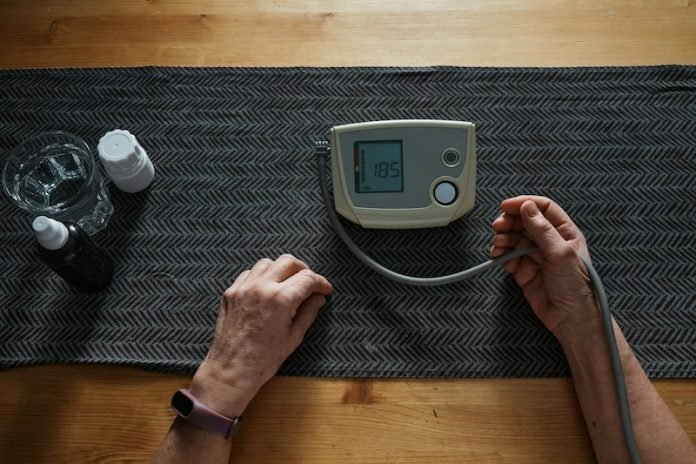
Blood pressure naturally fluctuates throughout the day, but for many people, it can be significantly higher in the morning.
This early morning surge in blood pressure is not just a curious biological phenomenon—it can also increase the risk of heart attacks and strokes which are more common during the early hours.
Understanding why this happens and how to manage it can help reduce these risks.
Blood pressure is the force that blood exerts against the walls of blood vessels. It is determined by the amount and force of blood pumped by the heart and the size and flexibility of the arteries.
A morning rise in blood pressure can be influenced by various factors, including body’s natural circadian rhythm, lifestyle, and even certain medical conditions.
One of the primary reasons for a morning increase in blood pressure is the body’s biological clock or circadian rhythm. This clock regulates the sleep-wake cycle and causes certain hormones, like cortisol and adrenaline, to peak in the early morning.
These hormones help to wake us up but also increase heart rate and cause blood vessels to narrow, both of which can raise blood pressure.
Sleep quality also plays a crucial role. Poor sleep or sleep disorders such as sleep apnea can exacerbate morning blood pressure spikes.
Sleep apnea, in particular, is known to cause low oxygen levels during sleep, which can trigger the body to release stress hormones, further raising blood pressure.
Lifestyle factors are also key contributors. For instance, the use of stimulants like caffeine or nicotine right after waking can cause a significant rise in morning blood pressure.
Additionally, physical inactivity and a diet high in salt can worsen blood pressure levels overall, including during the morning hours.
Research has shown various ways to manage or mitigate the morning rise in blood pressure. One effective approach is taking blood pressure medications at night.
Studies suggest that this timing can be more effective for controlling morning blood pressure than taking the same medications in the morning. However, it’s important for individuals to consult with their doctor to tailor medication timing to their specific health needs.
Lifestyle modifications can also have a significant impact. Maintaining a regular sleep schedule helps regulate the body’s circadian rhythms, reducing severe fluctuations in blood pressure.
Engaging in regular physical activity and managing stress through techniques such as yoga or meditation can improve heart health and reduce blood pressure spikes.
Dietary changes, particularly reducing salt intake and increasing the consumption of fruits, vegetables, and whole grains, are also beneficial.
Monitoring blood pressure at home, particularly during the morning, can help individuals and their healthcare providers better understand personal blood pressure patterns and adjust treatment plans accordingly.
This proactive approach allows for more precise management of blood pressure, which can prevent the long-term complications associated with high blood pressure.
It is essential for individuals experiencing significant morning surges in blood pressure to discuss these patterns with their healthcare provider. Together, they can identify potential underlying causes and develop an effective management plan.
By addressing the morning rise in blood pressure through both medical and lifestyle interventions, individuals can significantly improve their overall health and reduce their risk of cardiovascular events.
If you care about blood pressure, please read studies about how diets could help lower high blood pressure, and 3 grams of omega-3s a day keep high blood pressure at bay.
For more information about blood pressure,, please see recent studies that beetroot juice could help reduce blood pressure, and results showing cinnamon could help lower high blood pressure.
Copyright © 2024 Knowridge Science Report. All rights reserved.



